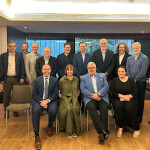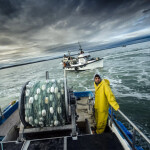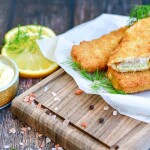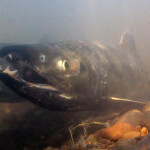Filters
Product Categories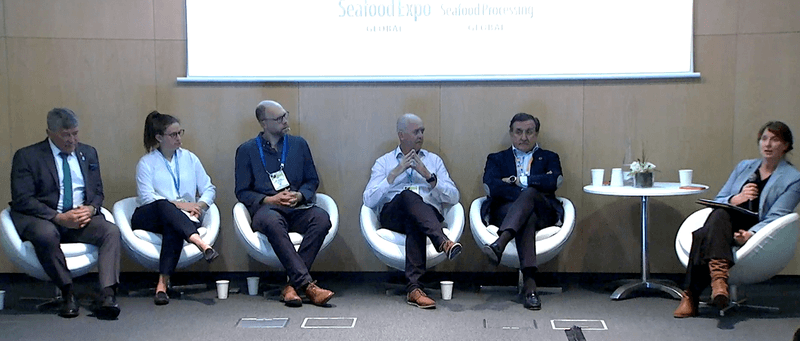
Speakers: Kristin Sherwood, Program Director - FishChoice
Andy Boulton, Aquaculture and Fisheries Manager - Waitrose & Partners
Andy Hickman, Head of SEA Alliance - Seafood Ethics Action (SEA) Alliance
Amber Madley, Head of Social Responsibility - New England Seafood International (NESI)
Julio Moron, Managing Director - OPAGAC
Chris Ninnes, CEO - Aquaculture Stewardship Council
Increasing transparency about human rights risks in seafood supply chains is an essential step toward advancing social responsibility in the seafood industry and complying with forthcoming European Union requirements for mandatory human rights due diligence. During this session, a diverse mix of industry and NGO leaders will speak candidly about the challenges and opportunities of increasing transparency about human rights risks, tools available for businesses, and lessons learned from other sectors. The focus of the discussion will be identifying pragmatic solutions to decrease the risk and increase the reward for disclosing human rights risks and efforts to mitigate them.
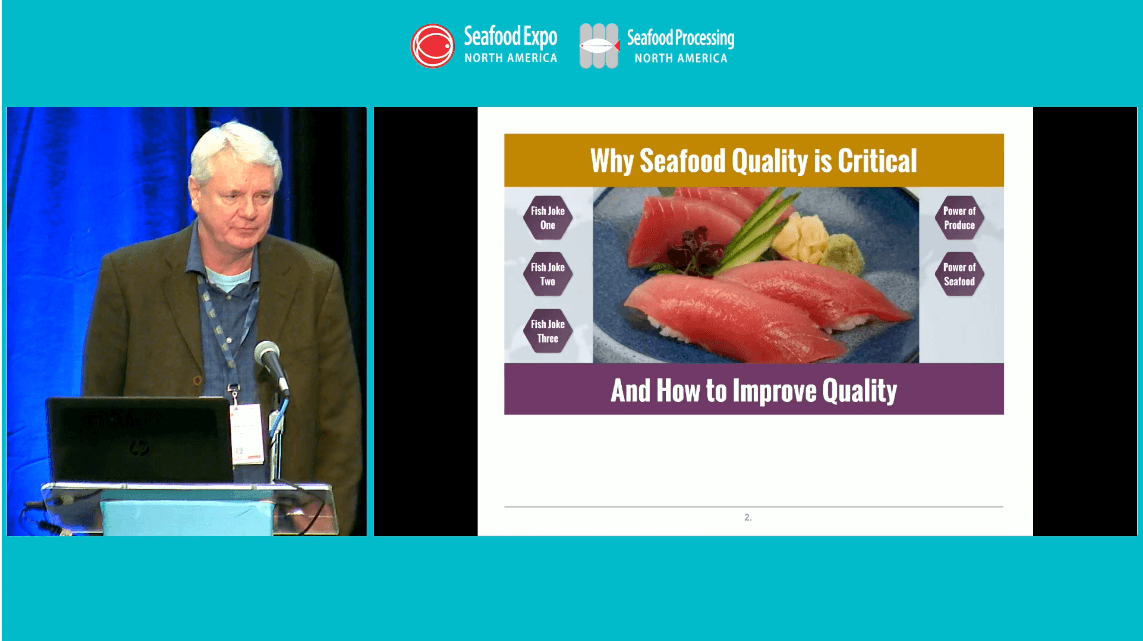
Moderator: Chuck Anderson, Certified Quality Foods
Speakers:
Christina DeWitt, Oregon State University
Denise Englade, Rouses Markets
Brandii Holmdahl, Bornstein Seafood
Jaimy Sorrell, Performance FoodService
According to the most recent FMI Power of Seafood report, quality is the number one factor that seafood consumers are concerned about when buying seafood. It is the number one concern every year. Grocery shoppers feel confident they can buy fresh poultry twenty times in a row and get a good quality meal twenty times in a row. Do your seafood customers know they will get twenty excellent quality seafood experiences in a row? Our panel of quality assurance and procurement experts explain why quality is essential for all levels of the seafood supply chain, why current seafood quality is inconsistent and how to improve operations to consistently deliver premium quality.

Maine Lobster - Sustaining from Trap to Table

Blockchain for Seafood: Engage the Market with Data on Provenance and Sustainability
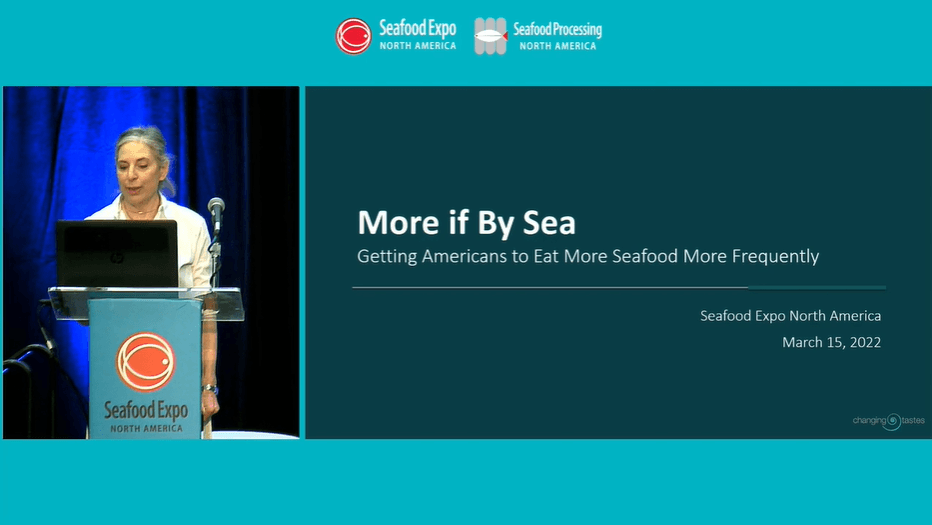
Moderator: Arlin Wasserman, Changing Tastes
Speakers: RJ Harvey, Chef, Changing Tastes
Penelope Wasserman, Changing Tastes
Wild or farmed? Fresh or frozen? Contrary to the conventional wisdom, these perennial questions actually remain unanswered by American consumers and aren’t even the most important for our industry. That may be: Fish or Chicken? Or really, what should I eat? This session will feature results from an unprecedented new insights study into consumer, chef and purchasing manager opinions about fish and seafood and how they fit into American food choices. More importantly than the "wild" or "farmed" questions, how fish and seafood is harvested and handled may make the difference about whether fish and seafood is offered up and whether a consumer eats fish, seafood or maybe chooses something else entirely, like beef or chicken. That’s an important question as the American consumer is undergoing a substantial change in the types of protein we eat, and the next few years pose a unique time to fish and shellfish to win market share from birds and mammals. We'll explore that and also share some of Changing Tastes' latest insights and trends about how consumers think about protein choices in the US and on the menu, as seafood competes against poultry and meat, and how newly emerging cellular and plant-based manufactured alternatives fit into our preferences and intentions. One thing to know: attitudes and preferences vary by species, including whether cellular or plant-based replacements are of interest. And we’ll also look at how consumer thoughts and expectations about how fish is produced compared to other protein choices. Through this session, we hope to break the industry out of the "wild or farmed" paradigm and offer practical advice for how to increase the share of food from the ocean in the American diet and get us eating fish and seafood more often and instead of chicken (again).

Eliminating Forced Labor in U.S. Supply Chains
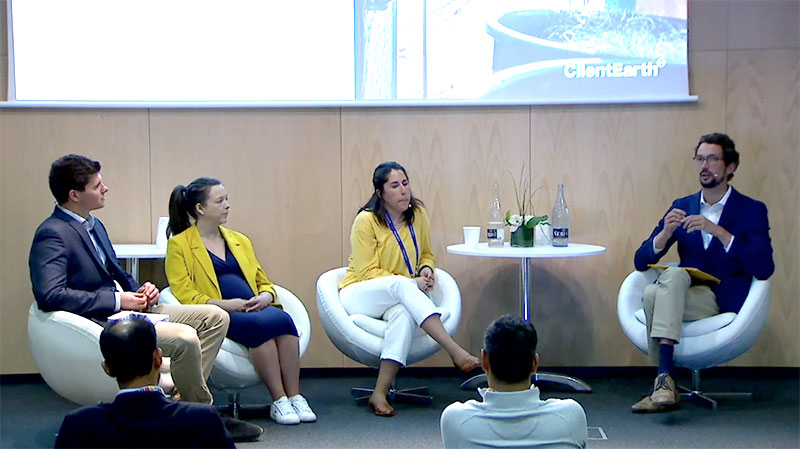
Precompetitive collaboration in the seafood industry has been at the forefront of transformative change towards improved seafood sustainability in supply chains internationally. For the past 10 years, collaborative industry platforms have multiplied in various markets around the world. These initiatives span various geographies and cover a range of topics. Some focus on a country whilst some aim to address transversal sustainability challenges faced by the sector. Over the years, these platforms have accumulated invaluable experience. We know today that there is no one size fits all solution, and that there are incredible differences between different seafood markets which justify the need for different approaches and modus operandi of these initiatives. This year, the Sustainable Seafood Coalition (https://www.sustainableseafoodcoalition.org/) is looking back at 10 years of collaboration in the UK seafood industry, an excellent milestone to reflect on the journey and the main successes and challenges along the way. As believers that buyers have a significant role to play in improving the fishery (or aquaculture activity) they source from, our session aims at providing a space to reflect on achievements of the SSC after 10 years and together with upcoming opportunities, and compare with similar initiatives in another geography, including the “Plataforma por la Sostenibilidad Pesquera” (https://www.es.clientearth.org/que-es-la-plataforma-por-la-sostenibilidad-pesquera/) a precompetitite platform in Spain. Taking into account the post-Covid economic and political context together with the context of a once in a generation European Green Deal to make our economy more sustainable, the participants will reflect on future opportunities to step up commitments and international collaboration further to strengthen the seafood sustainability agenda.


New, 1-Year Master’s in Ocean Food Systems from UNE
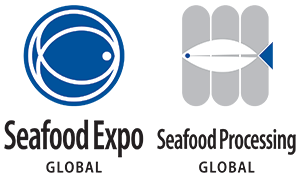
Access all available Seafood Expo Global 2023 conference session videos.


